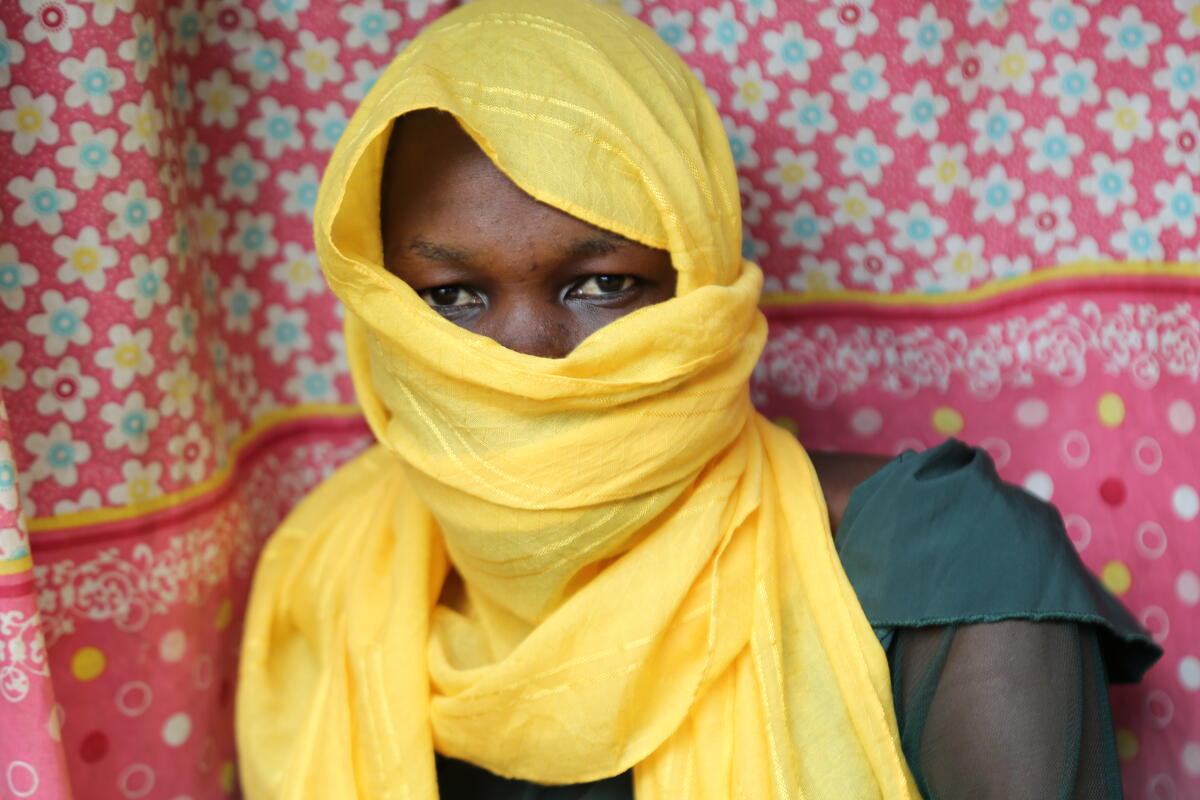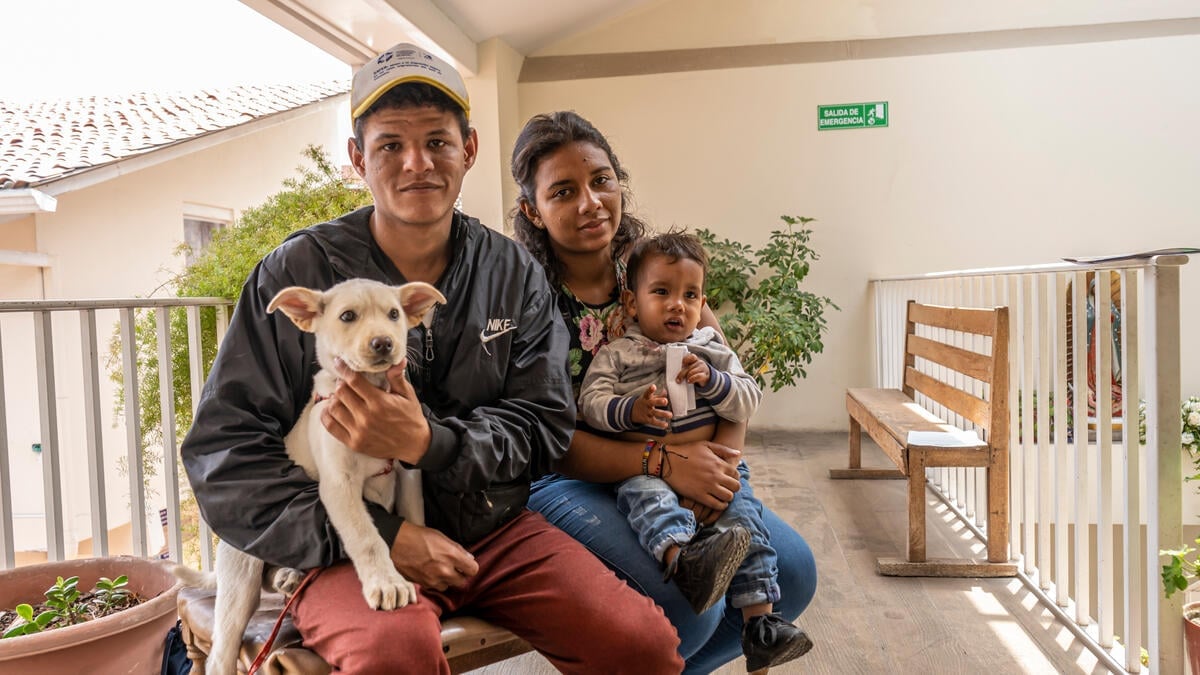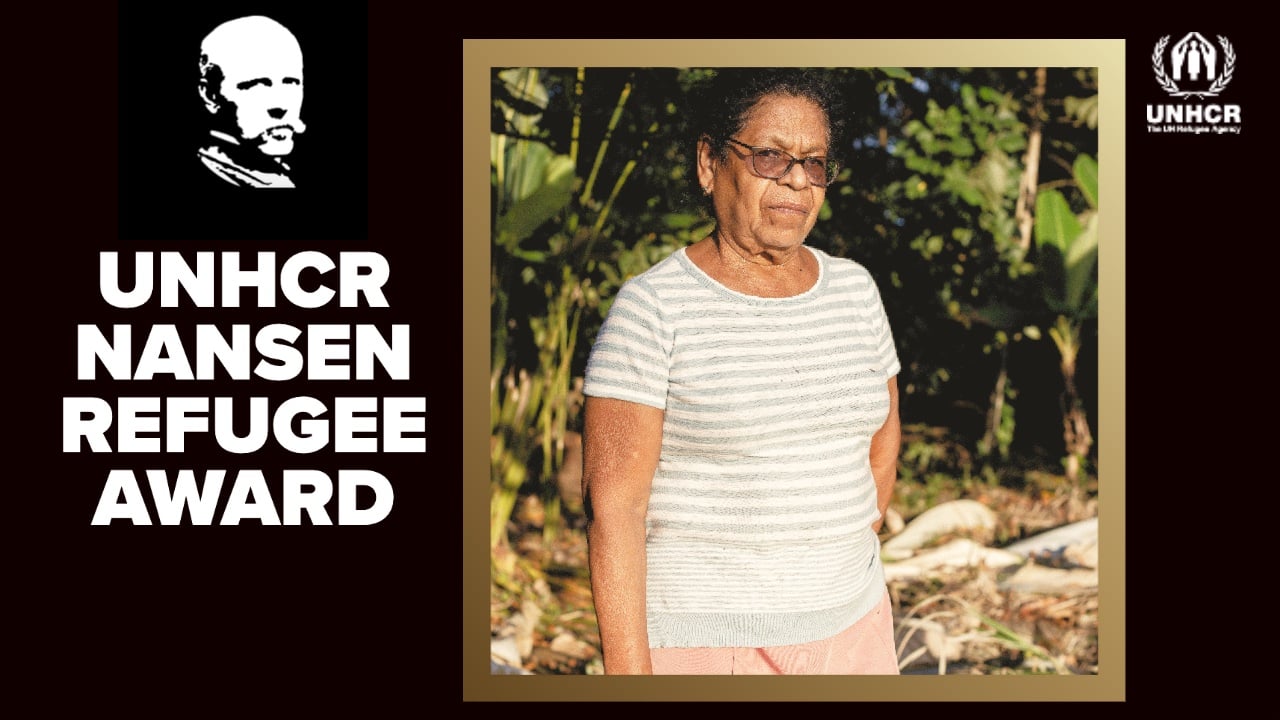Refugee women crochet up sweaters, self-esteem and camaraderie
Refugee women crochet up sweaters, self-esteem and camaraderie

PHNOM PENH, Cambodia, June 2 (UNHCR) - Amid the chatter of women and the laughter of children, refugee H'Nung Aya concentrates on her loom. "I made it myself from scrap material left by carpenters and workmen," she explains. From this contraption of old wood, rattan splinters, a blue plastic drain pipe and part of a steel bar, H'Nung has fashioned more than 30 bags, eight scarves and three blankets.
As her fingers fly over the loom, fellow refugee women sit on the floor nearby crocheting, using skills learned in a UNHCR-funded project, and emulating H'Nung in their desire not to remain idle at the four-storey concrete building housing Montagnard refugees in the Cambodian capital.
The crudeness of H'Nung's home-made device belies the intricate patterns on a shawl still in progress. H'Nung started learning the traditional weave of her people, the Montagnards from Viet Nam's Central Highlands, some thirty years ago. In between working on the farm and raising a family, H'Nung weaved for her local church, and found a way to continue even at the refugee site.
"I have been here since July 2006. I don't like sitting around with nothing to do," says the 51 year old refugee, who lives at the site with her daughter and son. "Weaving keeps me occupied and healthy."
Since 2001, some 3,000 Montagnards have crossed the border to seek asylum in Cambodia. They are housed at UNHCR's protected sites in Phnom Penh, while their claims are being processed. Their basic needs are taken care of, but boredom can be a problem.
While the refugees had some constructive activities, there was not much variety, and informal English lessons for the children were held irregularly because of difficulties in finding volunteer teachers. H'Nung Aya was willing to teach weaving, but it was impossible to get extra looms for teaching or practice.
Then in 2008 an alert UNHCR officer noticed that a few women at the sites were crocheting with yarn provided by a UNHCR partner. So UNHCR made it a formal project, offering a skill that was easy to learn with materials that were inexpensive.
The women were organized into small groups of eight to 10 with a leader overseeing their progress. So far more than 60 women have learned to crochet, producing everything from scarves and bags to matching baby hats and booties for their own use.
"I really enjoy doing this" says 13-year-old Ksor H'Wang, with a shy smile, after learning from an older refugee woman.
In between discussions about colour combinations and designs, the women also talk, laugh and attend to each other's children. UNHCR Field Clerk Samon Un feels the project has not only given these women viable skills, but also encouraged as sense of camaraderie among them.
"There were a few loners who just stayed in their rooms," she says. "I persuaded them to learn to crochet and now they are here with the others."
The Montagnards live a predominantly agrarian life, with still limited levels of formal education. None of these women have been financially independent and almost all of them have depended on their husbands for support.
"We only know of a few women who are teachers, doctors or civil servants in our village" says 28-year-old H'Thuang Nie. She herself only completed Grade 2 and has three young children.
With improvements taking place in the Central Highlands, many Montagnard asylum seekers have returned home. The women hope their new skills learned at the site will help them in Vietnam.
Teenager Ksor H'Wang is thinking ahead to her new life once she returns to the Central Highlands with her family. "I like making sweaters," she says. "Maybe I can make a business out of this someday."
By Adriani Wahjanto in Phnom Penh, Cambodia









